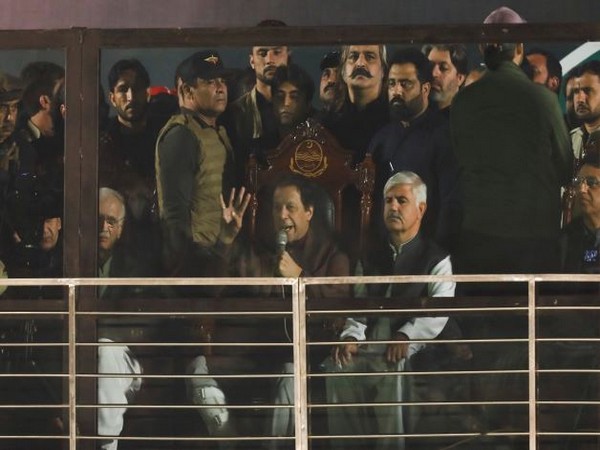Imran Khan's populism represents threat to Pakistan military: Report
Having tacitly played a major role in installing Khan at the summit of Pakistani politics and giving him the platform to build on his then-already burgeoning cult of personality, the shoe is on the other foot for the military.

- Country:
- Pakistan
The populism of ousted Pakistan Prime Minister Imran Khan represents a threat to the Pakistani military and to its relationship with the country's population, reported 9 Dashline. There is an irony in the military selecting an individual that could, plausibly, lead to its own downfall. In the past, the reverse has often been the case. In 1976, then Pakistani Prime Minister Zulfikar Ali Bhutto appointed General Muhammad Zia-ul-Haq as COAS, only to be deposed -- and later hanged -- by Zia the following year.
Similarly, Nawaz Sharif had appointed General Pervez Musharraf in 1998 before facing the same fate as Bhutto in 1999, albeit without losing his life. Having tacitly played a major role in installing Khan, the chief of Pakistan Tehreek-e-Insaf (PTI) at the summit of Pakistani politics and giving him the platform to build on his then-already burgeoning cult of personality, the shoe is on the other foot for the military, said Marcus Andreopoulos, a senior research fellow at the Asia-Pacific Foundation.
At the end of November 2022, after six years at the helm of the single most powerful institution in Pakistan, General Qamar Javed Bajwa was officially succeeded by General Asim Munir as the country's Chief of Army Staff (COAS). Out of office, Khan is proving to be a relentless source of pressure, first for Bajwa and now for Munir.
Munir took office at a precarious time for the country, as the civilian government prepares for contentious elections in 2023 and as the military grapples with an array of strategic challenges, reported 9 Dashline. The most urgent and immediate threat facing Munir and the coalition government is the populist rhetoric of Imran Khan, reported Andreopoulos.
Khan has accused the military of holding the country back during a time of economic and humanitarian catastrophe. Meanwhile, supporters of the now-leader of the opposition are rallying around the notion that the army was behind his downfall. The failed attempt on Khan's life at the start of November has only reinforced this populist narrative. Khan continues to build on this momentum, hosting rallies attended by thousands of adoring supporters -- both new and longstanding -- much to the government's and military's frustration.
Eliminating critics of the establishment is not unheard of in Pakistan and even has precedent in recent history. In October 2022, Arshad Sharif, a Pakistani journalist and outspoken critic of the army, was killed in Nairobi, with allegations that the ISI were behind the plot. While we will likely never know for sure if the military orchestrated the failed assassination of Khan, the military establishment should take some solace in the fact that it failed, said Andreopoulos.
Khan's populism has built him a formidable following throughout Pakistan and his movement continues to win hearts and minds as a result of his political fate. (ANI)
(This story has not been edited by Devdiscourse staff and is auto-generated from a syndicated feed.)
ALSO READ
Andhra Pradesh's Strategic Move to Harness Mineral-rich Coastline
Supreme Court Pushes for Reform in Coast Guard Retirement Policies
Cuban Officials Expose Details of Deadly Boat Encounter off Coast
INS Anjadip Commissioned to Boost Coastal ASW Power
Ivory Coast Shifts Cocoa Strategy Amid Market Slump









